From the start, Hulu’s ‘Interior Chinatown’ presents an off-kilter narrative that constantly leaves the mind scrambling for answers. The mind-boggling aspects continue till the very end, where revelations are made, which still leaves a lot of questions. Much of it comes from the meta aspects of the drama, where the lines between reality and fiction are constantly played with, especially through the expectations of the audience and the protagonist. However, the show reaches even greater lengths of deception in the final parts, where new information is fed to the central characters, leading them on a quest to rewrite their stories without any kind of concrete avenue to follow. As such, the conclusion points toward an ambiguous fate for both Willis and Lana and what it could mean going forward. SPOILERS AHEAD.
Interior Chinatown Season 1 Plot Recap
After years of working as a waiter at the Golden Palace restaurant, Willis Wu, an Asian-American waiter, is tired of his meager existence and being relegated to a life of being unseen by other people. Instead, he admires Detective Sarah Green and Miles Turner, who are the lead heroic duo in charge of maintaining the city’s peace. He wishes to be like them as it would mean being at the center of attention, something he has been deprived of all his life. Willis’ best friend, Fatty Choi, understands his frustrations but encourages him to enjoy life as is. However, things get complicated when Willis witnesses a crime outside the Golden Palace, which thrusts him into the fray of an investigation. Not long after, both Turner and Green show up in the vicinity, but Willis is strangely unable to talk to them.
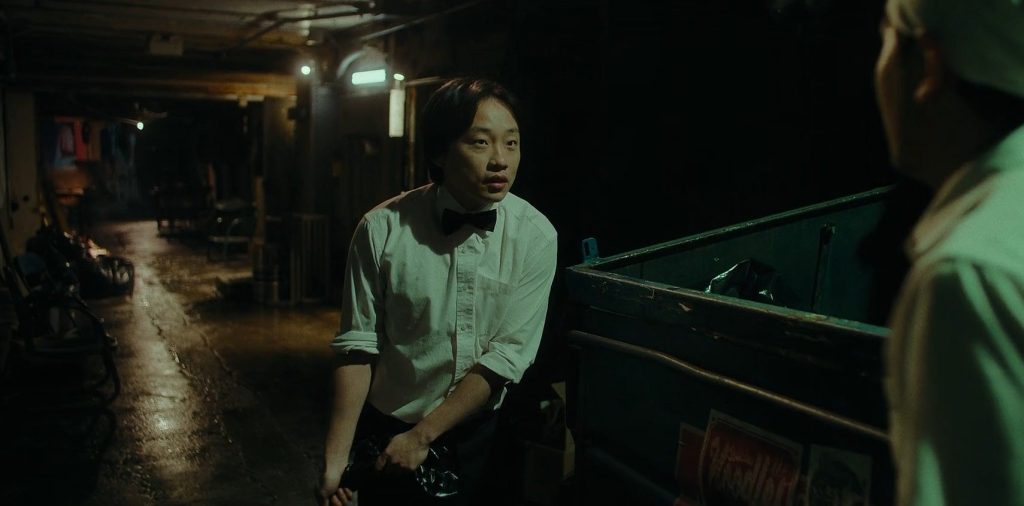
Subsequently, Willis meets up with another detective named Lana Lee, who shows up at the Golden Palace seeking the protagonist’s help in cracking the criminal underbelly of Chinatown, which is the place where he lives. The two start building a rapport, and Willis also starts engaging her in the mystery surrounding his brother’s disappearance, Jonathan, which was never investigated properly. Willis and Lana set up an undercover operation where they simultaneously work on their Chinatown case while decoding what happened to Jonathan. However, more secrets start emerging that seem inconsistent with reality. For instance, the flashing lights whenever Detective Green and Turner show up suggest the possibility of an alternate reality.
The most confusing aspect Willis comes across is his inability to enter the precinct as himself. Instead, he always has to take on the role of either a delivery guy or tech guy to be close to the police operation and everything surrounding the mystery. A spanner is thrown in the works when Willis discovers that there are tunnels underneath Chinatown which all lead to the docks. To make matters even more complicated, Uncle Wong, the owner of Golden Palace and a close friend of Willis, seems to be involved in the affair. The protagonist starts confronting the truth of the matter head-on but only stumbles upon more inconsistent answers that make no sense. In all the mess, a single thing keeps reemerging: Willis’s brother and his seeming connection with a Chinatown gang named the Painted Faces.
Interior Chinatown Season 1 Ending: Does Willis Meet the Painted Faces Gang?
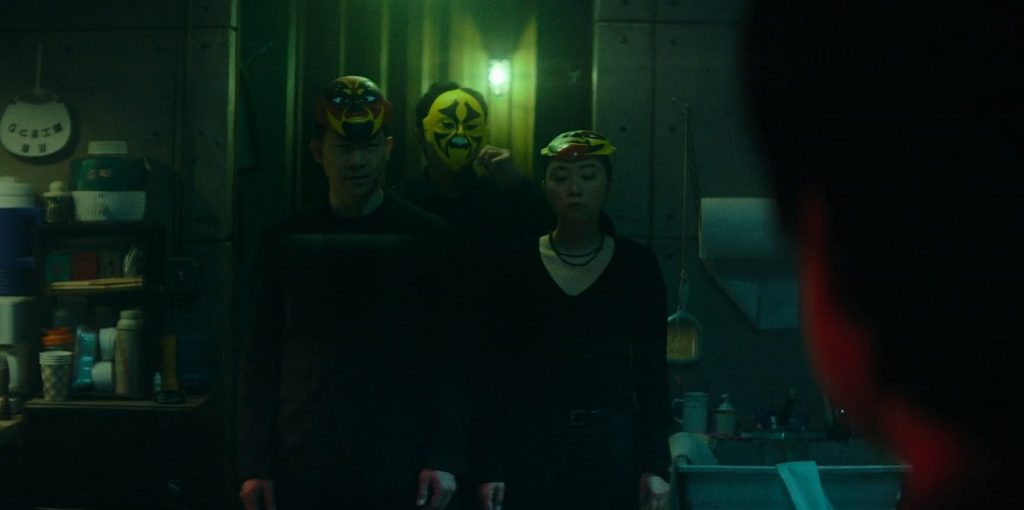
Although the Painted Faces gang is a recurring name and distant threat throughout the narrative, the actual gang only appears in the season’s final episode. At the start, Willis is told by Lee and her police colleagues that the gang is responsible for all the criminal activities occurring in Chinatown. Everything is said to be linked to them, including the abduction Willis witnesses in the first episode. However, over time, a different truth starts surfacing as Willis and Lee dig deeper and find the connection between the gang and Willis’ brother, Jonathan. While working as a tech guy, Willis uncovers footage of Jonathan meeting the gang in their hideout. Their interaction is so intimate that Willis mistakenly assumes that the gang’s leader is Jonathan. It is all a setup for a much bigger conspiracy.
As it turns out, the gang is nothing more than a group of three people named Michelle, Benson, and Larry, three Asian Americans who are looking into the truth about the reality constructed around the city and its neighborhoods. Contrary to the reports, they are completely harmless individuals who are working against the system to find the root cause of the artificial reality surrounding them. However, because of their rebellious attitude, the police reports about them showcase them as dangerous individuals who are seeking to destroy the peace of Chinatown and its residents. Willis learns the facts himself when he goes down into their lair, where he finally meets the three members face-to-face. He also realizes that the whole Painted Faces aspect of the gang is something the members embraced to live up to their notoriety.
Do Turner and Green Reconcile?
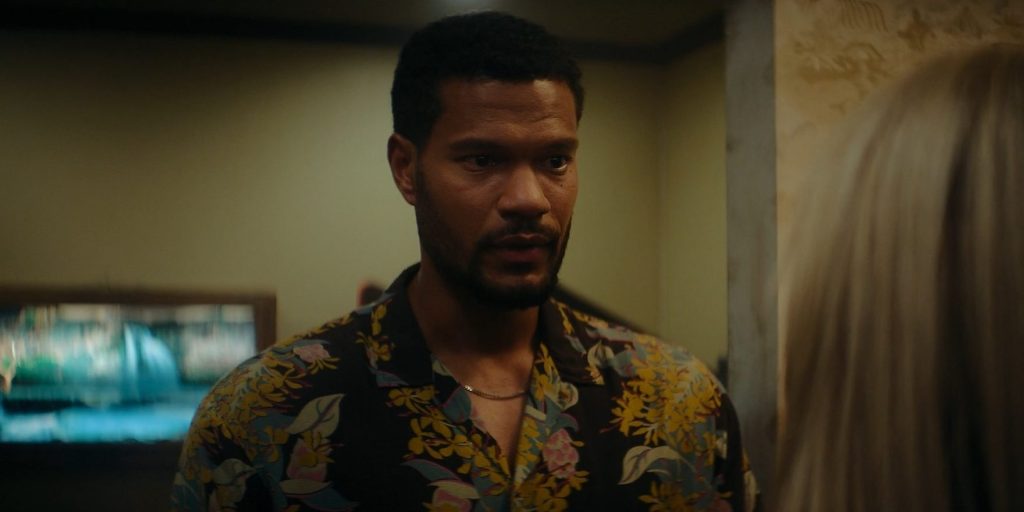
One of the more interesting side stories explored within the story is Miles Turner’s slow realization about the fakeness of the world he inhabits. Although he and Green start off as the quintessential police procedural leads who have everything under control and solve every crime they are faced with, the sheen of their infallibility starts to rub Turner the wrong way the more the narrative progresses. Eventually, Turner himself starts stumbling upon the truth that the world he is living in is nothing but a constructed vacuum where he is simply playing the role of a lead cop alongside his trusted partner, Green. Matters come to a head even further during a bomb incident where Turner notices that the bomb gets disarmed even before he cuts the wire. In the aftermath, things get so heavy for Turner that he leaves the job.
Following his departure, Willis Wu picks up the slack as Turner’s replacement, something the former detective encouraged. Meanwhile, he retires to a more idyllic lifestyle as a mangaka artist writing stories about his original character, Takeshi-san. The arrangement seems to work out in the short term, but as things get more and more heated up in the department, Turner is faced with the dilemma of returning to his job and helping his partner out once more. He does take up the offer after his doubt about the artificial nature of their world is confirmed by Willis and Lee in the final portions. He also gets the chance to clear the air with Green and admits to her that despite leaving the job, he feels that he still connects with her and misses her. The two manage to finally clear the air and be honest for once in their job.
What is the Truth About Willis’ Reality?
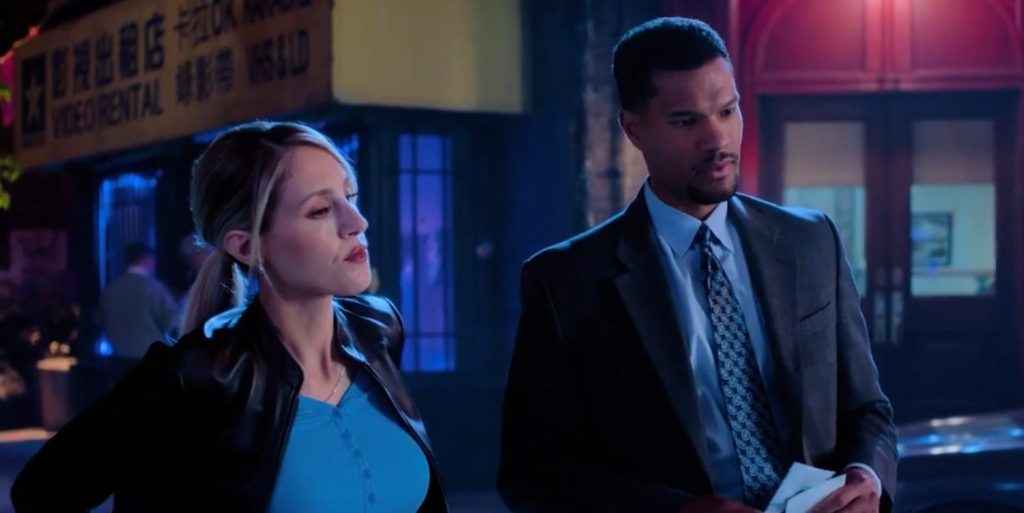
At the center of ‘Interior Chinatown’ lies the mystery of the reality inhabited by Willis and the people surrounding him. After various trials and tribulations across the narrative, the protagonist finally comes to learn about his world when he meets the Painted Faces gang. The gang members reveal to Willis that he and everyone else in the city are living out their lives in a weird, meta TV procedural show titled ‘Black & White: Impossible Crimes Unit.’ Everything and everyone in their life is constantly being monitored and watched by the people running the show, HBWC, a media company. Once Willis learns the truth, a ripple of shock goes through his entire system.
Subsequently, the protagonist divulges the truth to Turner and Lee, with the latter already suspecting something strange was afoot. They both accept the new truth as it aligns with much of the strangeness they experienced while working in their jobs. However, it also adds a different type of meaning to the lives they have led thus far. If anyone tries to deviate from the role assigned to them in this reality, they are instantly eradicated from the system and rebooted without any memory of anything. Willis witnesses this through Detective McDonough, who died previously but returned with no clear memory or a physical look representing his age. Therefore, Willis finally alights upon why he has always felt like a background character in someone else’s story – because he was.
Is Jonathan Still Alive? Is He Sending Messages?
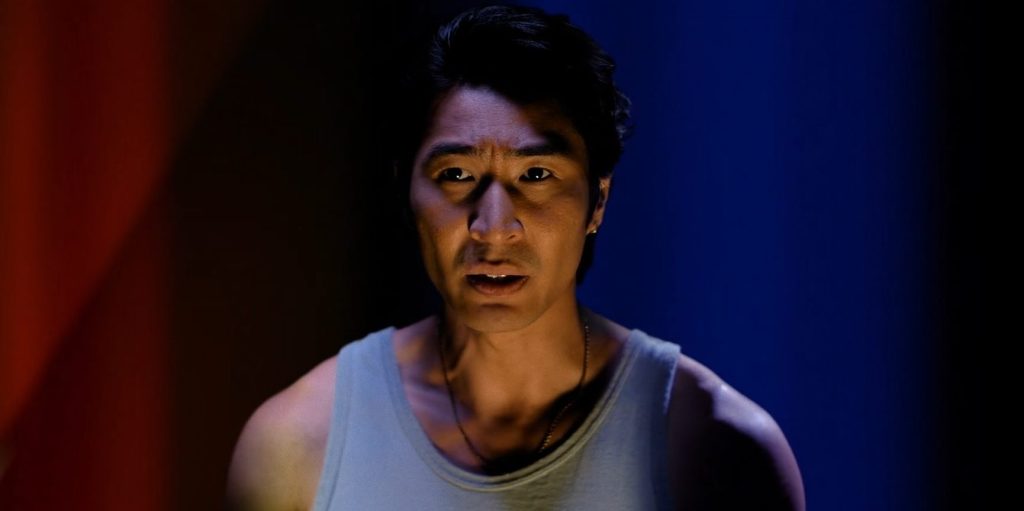
Another central mystery that eludes any explanation for long sections of the story is the fate of Jonathan, Willis’ brother. The character’s disappearance sparks Willis into action as he teams up with Detective Lana Lee to find the truth behind what happened to him. As Jonathan was a helper within the Port Harbor Police Department, his disappearance is linked to the people who were the lead detectives at the time – McDonough and Carrey. They utilized Jonathan as a Chinatown informant and resident martial arts expert. His stock was so high that Willis admired his brother and thought of him as the heroic figure he aspired to be. However, over time, Willis uncovers a more complicated mystery surrounding Jonathan and his disappearance.
While Jonathan was working for the cops, he started getting more and more disillusioned about his life and how everything was fake, not unlike Detective Turner’s realization. As such, he became increasingly erratic in his behavior, which even bled into his love life with Lana Lee, who was his lover before she teamed up with Willis. At the end of the story, Willis learns that Jonathan was framed for the murder of McDonough, and the actual culprits were the people who were running the show, HBWC. Subsequently, Jonathan fled the scene on a boat, handcuffing himself to a pipe in the lower deck, which ensured that he died when the boat capsized. His death ensured that he left the fake reality and woke up in the outside world, wherever that might be.
Meanwhile, Willis learns from Lana that the arcade game in the Golden Palace actually has messages on its high-score screen. Because the same media company owns the game, Lana hypothesizes that Jonathan is secretly sending messages from wherever he is. In the end, Willis meets his brother in a strange pseudo-reality where he plays the same arcade game inside the shop. The two hug and embrace before Willis has to leave. It is an ambiguous scene that suggests that despite everything Jonathan has gone through, he is still alive and continues to try to break out other people like him from the weird fictional reality. However, it may take more effort to extricate everyone and learn what really happened to him.
How Does Willis Rewrite His Ending? Does He Wake Up in Another Show?
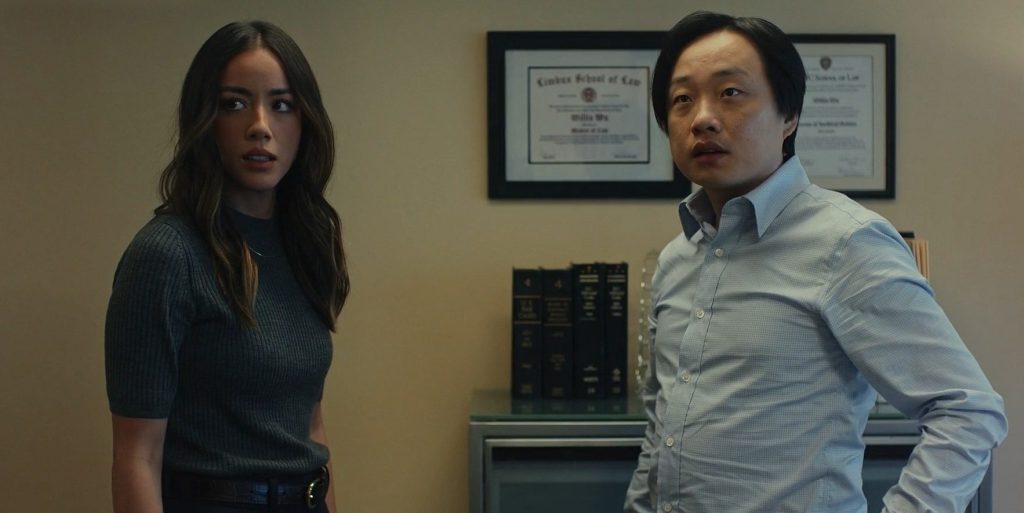
The final moments of ‘Interior Chinatown’ are also its most meaningful parts as Willis finally reconciles the conflicted parts of his psyche with the outside world, which has constantly rejected him all his life. After the cops chase him and Lana to the rooftop, the protagonist is given the opportunity to set his story straight and record his experience in an honest monologue that talks about his adventures. He acknowledges how he has always wanted to be at the center of attention, but in the end, he realizes that his mother, father, brother, and loved ones were always the most important thing. It also puts a more introspective and reflective tone to the conclusion as it throws up questions regarding the constricted life most people lead and how breaking out of it can prove to be the biggest challenge.
Ultimately, the ins and outs of Willis’ fabricated TV show reality are not as important as what they mean metaphorically and socially for the character. As an Asian-American, he has constantly been disregarded wherever he has gone and forced to live a role that everyone else expects of him, either through systemic racism or through social expectations. Both sides of that existential dilemma are perfectly represented through the fictional TV drama that he has been living inside, where everyone fits into the mold of a one-dimensional character archetype. Thus, even at the end, when he and Lana jump off the roof to escape the narrative, they only wake up in another show, playing different characters with different expectations. However, the message remains the same – the roles we play in life are never-ending.
Read More: Hulu’s Interior Chinatown: All Filming Locations, Explored

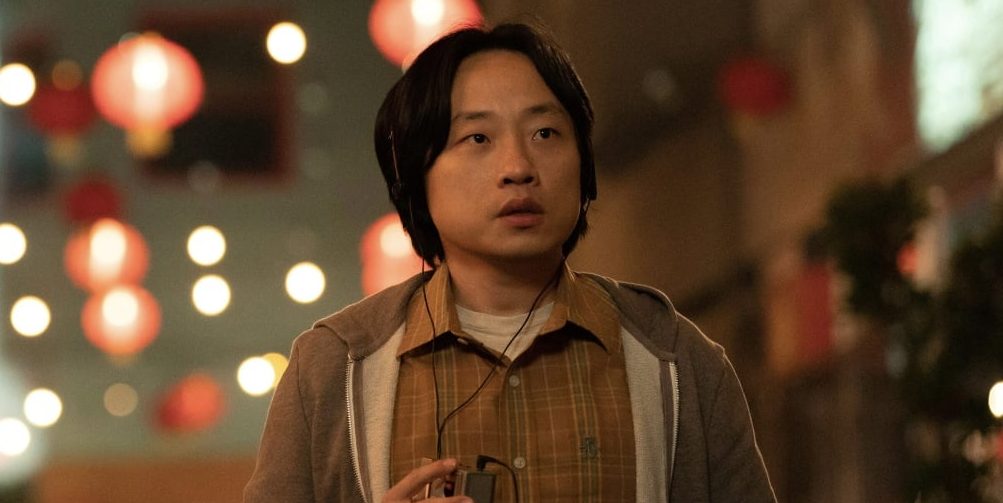
You must be logged in to post a comment.